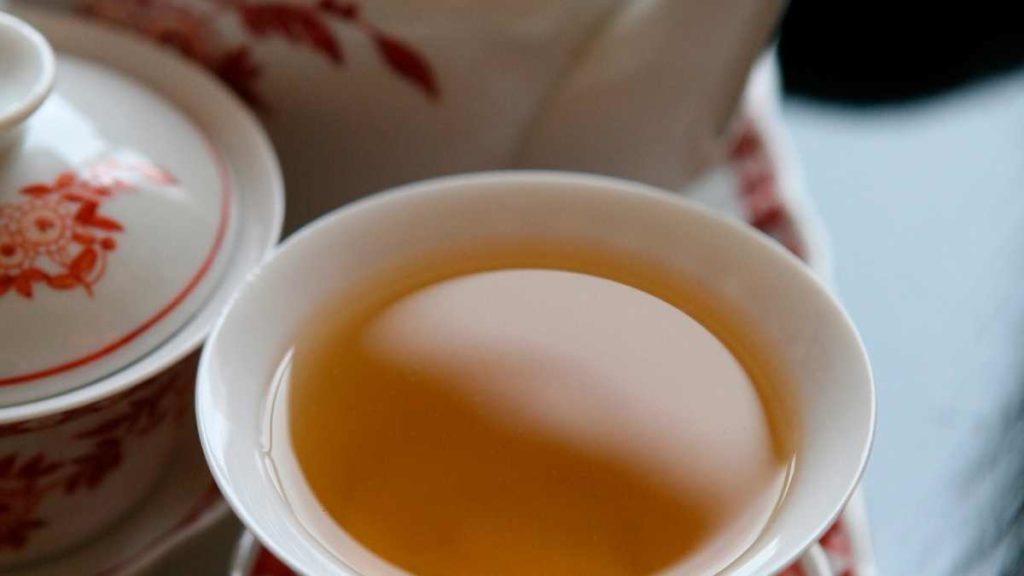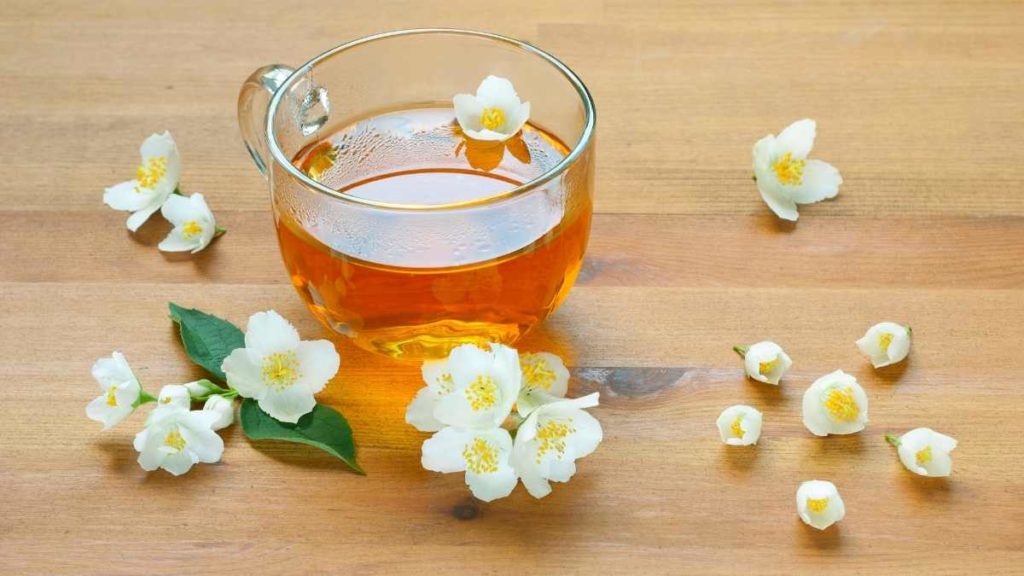Made with a base of tea leaves and jasmine blossoms, jasmine tea is a scented tea that originated from China around the fifth century. For centuries, jasmine tea was only popular in China. It wasn’t until the 19th century that it was introduced to the West through trade.
Now, jasmine tea is among the most well-known scented teas worldwide. Its aroma is known to relieve stress. It’s also full of antioxidants that can get rid of free radicals in our bodies.
Besides its delectable smell, what does jasmine tea taste like? Jasmine tea’s flavor depends on several factors: scenting process, brewing process, and tea base.
Jasmine Tea Flavor Profile
Jasmine tea generally has a soft, delicate, floral flavor profile with a subtle sweet note. This flavor profile can be intense, subtle, or somewhere in between. The scenting process, brewing, and tea base can all affect the flavor of jasmine tea.
Scenting
There are a few scenting methods used to infuse jasmine with tea leaves:
Natural Scenting
When naturally scenting tea leaves, the jasmine buds are plucked when they’re closed. Then, they’re placed below a woven tray of loose tea leaves. As the buds bloom, their oils seep into the leaves.
This process can last for a couple of days, with the jasmines regularly. The result is a subtle, floral flavor mixed with a hint of sweetness.
Making Jasmine Pearls
In this process, tea and jasmine buds are layered and hand-rolled into pearl-like shapes. This allows the jasmine’s essential oils to seep into the tea leaves.
The flavor profile of jasmine pearls tea is unlike any other. It’s strong and abundantly rich in flavor. Jasmine pearls tea is recognized for its intensely floral taste that’s accompanied with a spring-like freshness.
The highest-quality jasmine tea is jasmine pearls tea.

Jasmine Tea Tastes Relaxing 
How do you make Jasmine Tea taste better?
Jasmine Tea Brewing
As with other teas, brewing jasmine tea at the proper temperature will bring out the most of its taste.
The recommended brewing temperature for jasmine tea is just shy of boiling water, which is around 175 degrees Fahrenheit. This will coax out the fragrant, sweet jasmine flavor.
Tea Base
The tea base of a jasmine tea will have the greatest impact on its taste.
Green tea is probably the most famous tea base for jasmine tea. This infusion produces a subtle, harmonious flavor that combines the best of green tea leaves and jasmine blossoms.
Jasmine green tea has a delicate floral flavor profile mixed with notes of sweetness as well as freshness. This soft, gentle flavor is the reason many enjoy jasmine green tea. It also places right in the middle between jasmine black tea and jasmine white tea.
With the black tea as a base, jasmine black teas can be quite strong and rich in flavor with a subtle floral hint.
On the other end of the spectrum, jasmine white tea has a much more floral flavor. White tea is quite flowery in the first place. So, with the addition of jasmine, it produces a mellow, flowery flavor profile.
Taro – what is the real taste?
Does Jasmine Tea smell like Jasmine
Jasmine tea has a delicate floral aroma and if it is a top-quality tea it will have Jasmine flow and there it will smell like jasmine.
Cheaper Jasmine teas will often add a tiny bit of jasmine oil to give that jasmine smell.
How do you make Jasmine Tea taste better?
Good quality Jasmine tea is made from the flower buds of the jasmine plant. To make Jasmine tea taste better, add sugar or honey.
Is jasmine tea the same as Green tea
Green Tea VS Jasmine Tea – Differences in Taste And Flavor
Tea is one of the most popular beverages in the world. It’s a drink that has been enjoyed for centuries and it can be found all over the globe.
Jasmine Tea has a much more gentle or easy taste than Green Tea which is quite stong. If you are just starting to drink herbal tea – then Jasmine tea is a better one to start with.
Green tea will be in many different types, which can include Matcha and specially blended green teas. You can also make coffee less acidic.